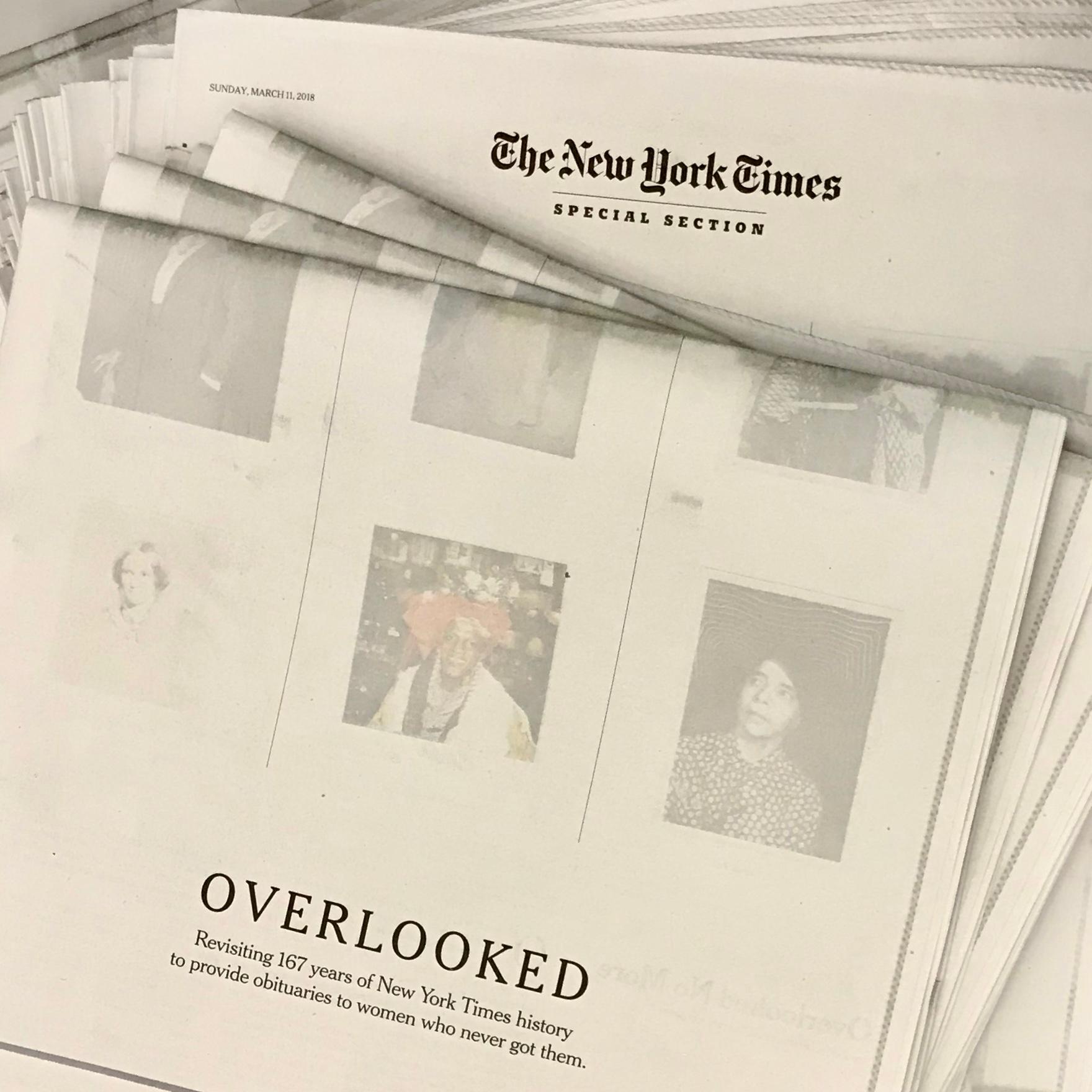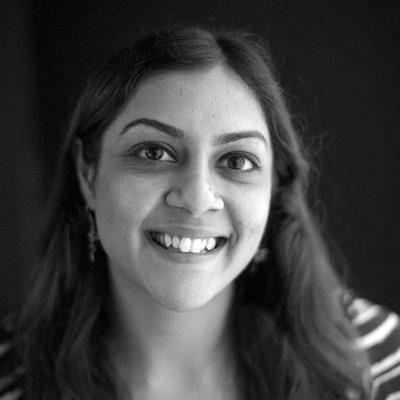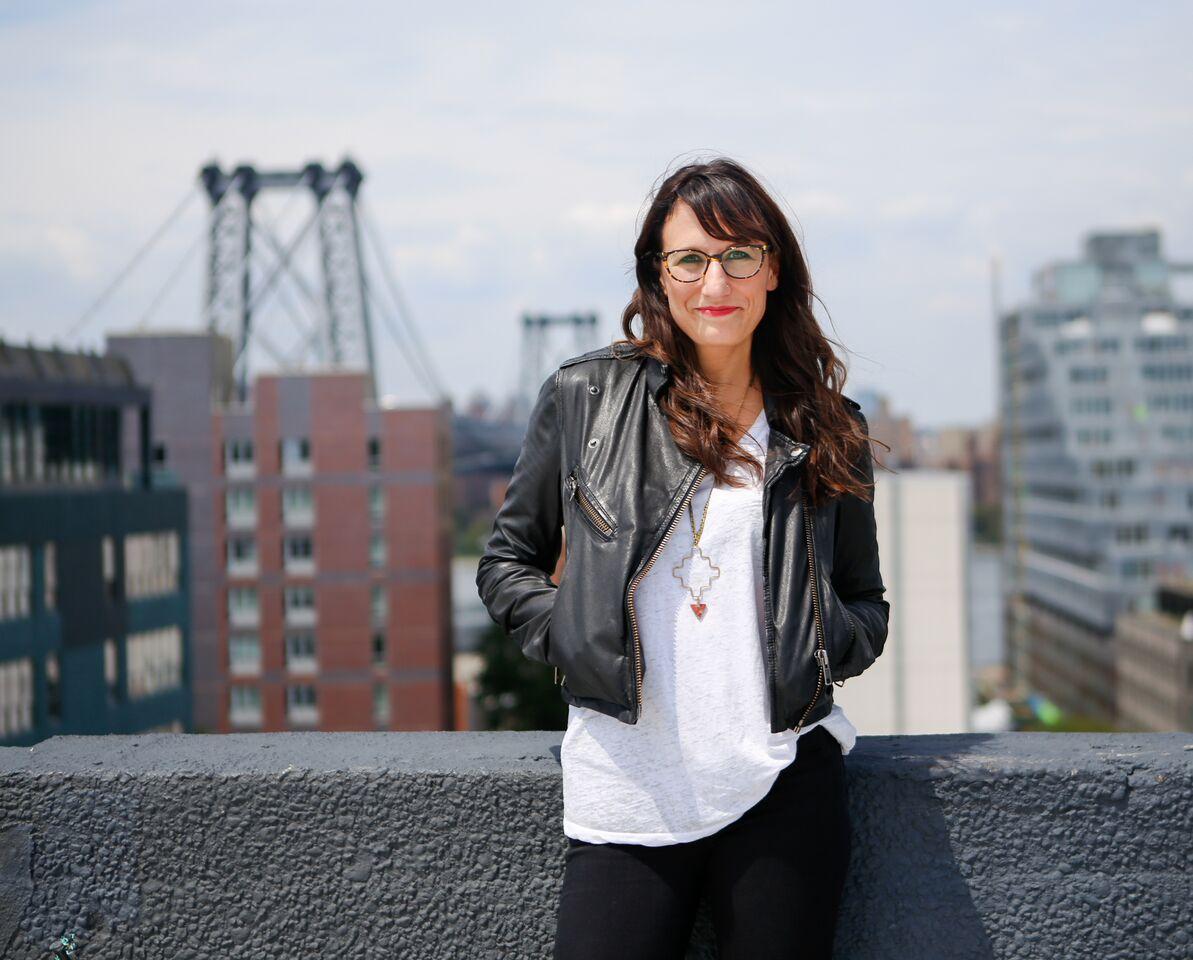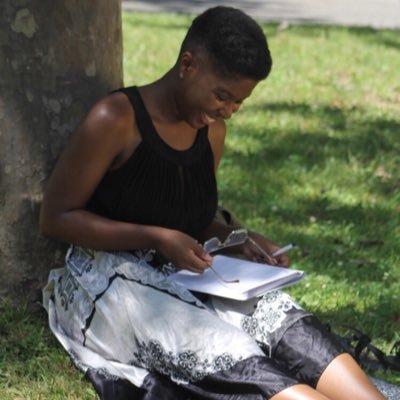The New York Times Celebrates The Life Of Overlooked Women In History

“Obituary writing is more about life than death: the last word, a testament to a human contribution”– Amisha “Amy” Padnani and Jessica Bennett
Overlooked is a ground-breaking multi-media project created by Amisha “Amy” Padnani, the digital editor of the New York Times obituary section, in collaboration with New York Times’ first gender editor, Jessica Bennett, to tell the stories of several historical women who, for whatever reason, were “overlooked” by the New York Times’ obituary section. The women highlighted include:
Ida B Wells, a journalist who reported on lynching and advocated against it in the deep south.
Qiu Jin, a feminist poet and revolutionary who became a martyr known as China’s ‘Joan of Arc.’
Mary Ewing Outerbridge, a woman who may have established America’s first tennis court in the 1870s.
Madhubala, a Bollywood legend whose tragic life mirrored Marilyn Monroe’s.
Nella Larsen, a Harlem Renaissance-era writer who has a modernist take on race.
Ada Lovelace, a gifted mathematician who is now recognized as the first computer programmer.

‘Overlooked’ is revolutionary because the Times obituaries section has been dominated by white men since 1851, leaving out some of history’s most influential and important players in moving humanity forward – women.
Her Agenda had the extraordinary opportunity to Padnani about how this momentous project came to fruition and how women can make a mark in their careers as leaders with or without a title.
Her Agenda: How did you get the idea to create the Overlooked project?
Amy Padnani: Well, I joined obits in January 2017 [which] was around the time I personally began thinking more about diversity initiatives. I went through a program in March that year called the “Executive Leadership Program” hosted by the Asian American Journalist Association (AAJA). It’s a very intensive workshop for midlevel career journalists to think about leadership as a behavior and not as a role. Whatever goal you want to accomplish you should be able to do it no matter where you are in your company. When I came out of that [workshop], there were a lot of conversations [happening] about diversity, which had me thinking what I could do in my role at the [Times]. So, I thought about [Overlooked] and I started amassing this list.

Her Agenda: How did you start collaborating with Jessica Bennett on this project?
Amy Padnani: When I heard that Jessica Bennett was coming to the New York Times. I was so excited that I sent her an email to ask if she wanted to get coffee because I wanted to tell her about the project. As soon as I told her about it, she said, “Wow, that’s fantastic. I want to partner with you.” It wasn’t that hard to get her involved. It was just about awareness and both of us being excited about the same thing. So, from then on, the gender team and obituary team combined efforts as far as writing, editing, photo editing and design [on Overlooked].
Her Agenda: Where do you see this project going in the future?
Amy Padnani: We will be expanding our lens to include more than just women, so Overlooked will continue for months to come. We’re looking to broaden [the project] to look at other marginalized people so there’s a lot of opportunities to grow. And as the digital editor of obituaries, I’m getting a traditional desk to look at new ways of storytelling – often more visual.
I’m also involved in other diversity initiatives at the New York Times. I became the co-chair of the Asian Network so I’m hoping to impact conversations about diversity and awareness around the building, which could just be for our workplace culture or it could be by infusing different ideas in editors’ minds as they do their work for news coverage. It’s hard to say but in general, I’m really interested in getting involved with diversity initiatives, which could play a greater role in the greater institutions, although not directly tied to my job.
Her Agenda: Overlooked was such a dynamic project. The amount of research, work, effort and passion shines through throughout the project. What drives your passion to do this type of work?
Amy Padnani: I have a love for storytelling and I appreciate the opportunity to give voices to people who don’t normally have them and the Obituaries section has been an amazing opportunity to bring out all the things that I love about journalism. I feel very fulfilled.

Her Agenda: You mentioned earlier that you attended a workshop from AAJA that taught you “whatever goal you want to accomplish you should be able to do it no matter where you are in your company.” What advice do you have for women about how they can leave marks in their careers and in the world with or without a leadership title?
Amy Padnani: I think the words I came away with [from the workshop] that were key are that leadership is a behavior, not a role. It’s about feeling empowered to make a difference whether it’s small or big in whatever it is you want to achieve. It’s helpful to write the goals you want on a piece of paper, strategize how to get there, and then check them off one by one. If you can find somebody to help motivate you along the way or coach you, [that’s] even better but I think it’s just about knowing you can do it.






